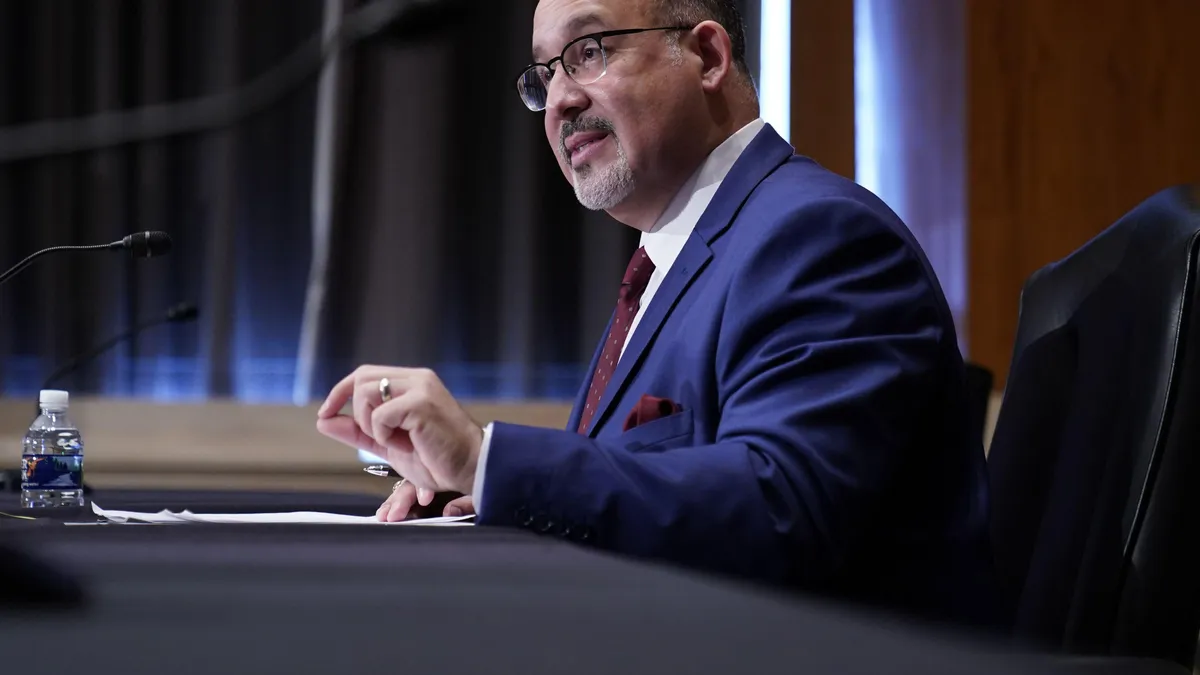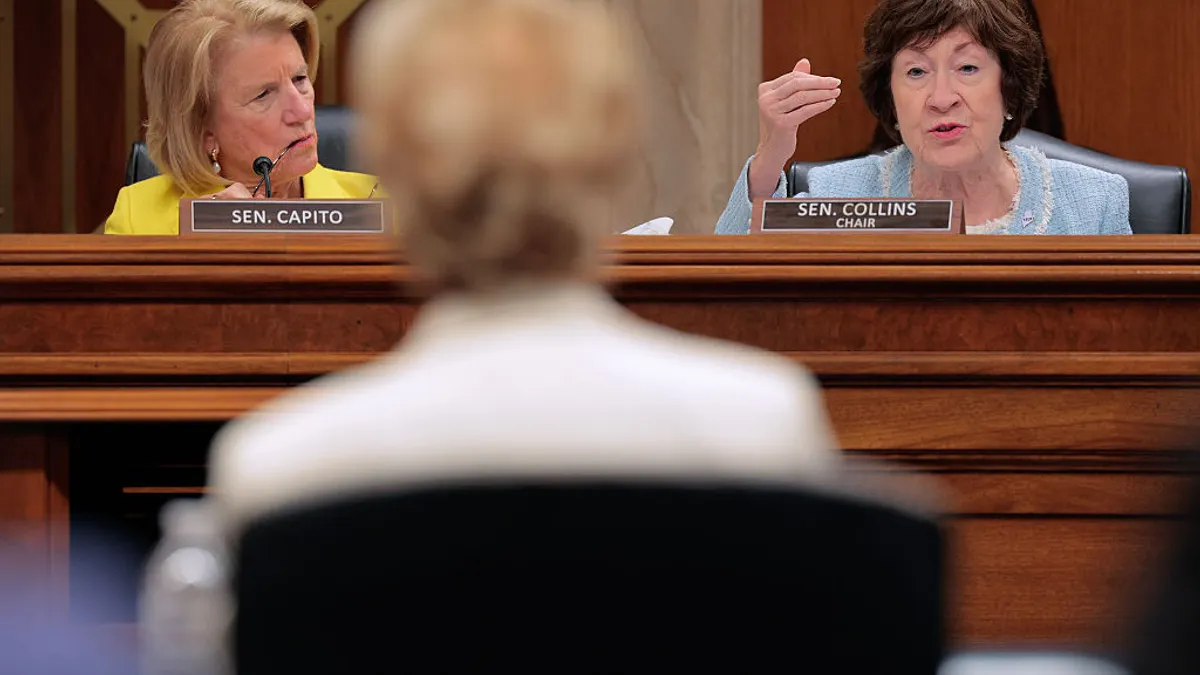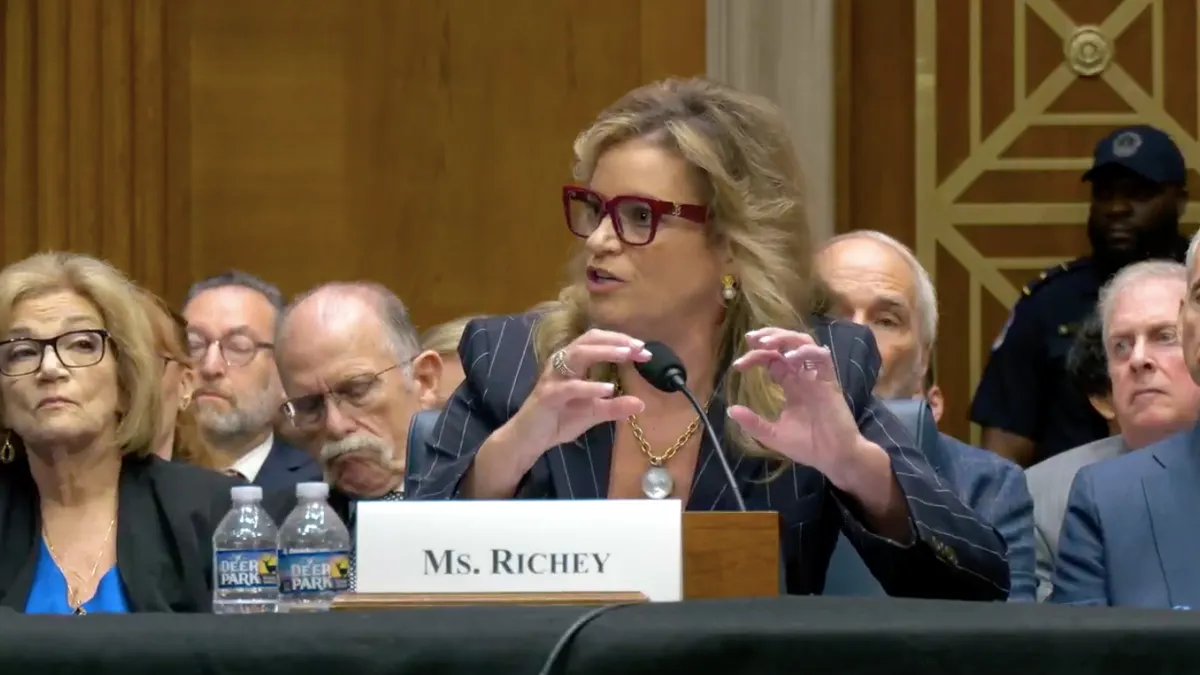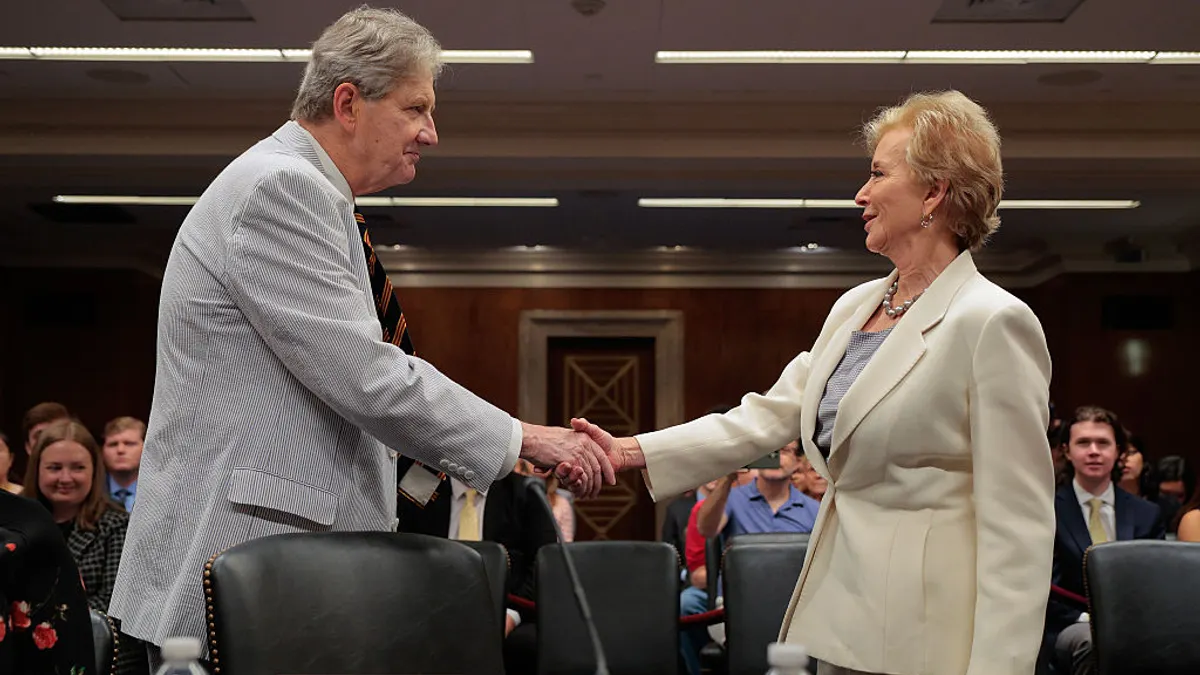President Joe Biden's transition to the Oval Office was accompanied by a slew of hopes for and promises made to the education sector, Title IX reform among them. After a turbulent year for education leaders, during which the U.S. Department of Education under former secretary Betsy DeVos overhauled Title IX, the civil rights law protecting against sex-based discrimination in education faces change — again.
In an April Dear Colleagues letter, Acting Assistant Secretary for Civil Rights Suzanne Goldberg announced the department would initiate a comprehensive review of Title IX regulations, with plans to propose new rules upon completion. Meanwhile, districts are expected to continue implementing the regulations issued under the Trump administration in August, though they could potentially be met with limited enforcement from the Office for Civil Rights.
In feedback from districts that was provided to an industry group and shared with K-12 Dive, several district leaders expressed a range of reactions, from uncertainty about implementation timelines to frustration over the regulations' complex and rigid processes.
"Never in my 30 years have I ever experienced a more requisite dramatic paradigm shift in administrative thought regarding decisions that were seemingly so secure (e.g. the qualifying components of what constituted behaviors to be addressed under Title IX)," one district leader wrote in comments shared with K-12 Dive.
Changes are 'a Frankenstein's monster of confusion' for districts
Districts, many of which are still catching up with the most recent Title IX changes under the Trump administration, remain overwhelmed and sometimes confused.
"With the new regulations in play, all surety was ripped away, reassembled as a Frankenstein's monster of confusion and disjointed parts, and then reintroduced under the guise of better guidance," the same district leader said of last year's changes. "It simply wasn't."
Other feedback included concern about parents' and students' unawareness about the changing regulations and difficulty accessing their protections; a shortage of staff dedicated to Title IX issues and the limited understanding of broader school staff; and the timing of the regulations and whether the Biden administration will enforce them, a source who had direct knowledge of the comments said.
How districts have implemented the new regulations can look different across the country depending on a variety of factors like time, resources and mode of learning during the COVID-19 pandemic, said Sasha Pudelski, assistant director of policy and advocacy for AASA, The School Superintendents Association.
"I was talking to some districts who said, 'Our Title IX staff right now are doing contact tracing,'" Pudelski said. "I mean, yeah, they're the point-of-contact for Title IX issues, but they have more critical jobs of keeping the school open that they're focused on right now."
Those who were able to get around to making changes immediately last summer made administrative fixes at first, like revisiting sexual harassment, misconduct and discrimination policies to ensure definitions align with the new regulations. Others were able to fit in training.
Yet some are just getting started, said Kim Pacelli, a Title IX expert who conducts trainings for the Association of Title IX Administrators.
One area that poses a challenge for districts is the division of new roles and responsibilities, said Pacelli. Under the new rules, investigators and decision-makers in Title IX cases have to be separate individuals, which can be both "very beneficial" and "a different way of thinking" for districts.
"It really caused a lot of Title IX coordinators to have to stop and really think, 'Who is going to do this work in our district, and how are we going to structure this?'" Pacelli said, adding most districts don't have the resources to hire Title IX staff. "I think there are creative ways to do this kind of staffing, but my observation as an outsider is that it’s really counter-cultural to how schools typically assign work like this."
Districts and trainers also say professional development and awareness around new Title IX regulations have been a hurdle despite pouring in time and resources.
Even with training, districts are having a difficult time getting administrators, who are accustomed to responding to potential Title IX allegations immediately, adjusted to the new and more rigid gatekeeping process of what triggers a complex investigation under the law and what does not, according to Pacelli. Sometimes, these complexities can result in a prolonged investigation process involving multiple actors and agencies when parents and alleged victims are looking for swift action. Other times, a seemingly routine disciplinary matter may trigger a Title IX investigation under the new regulations.
Despite families speaking to trained lawyers and school administrators, parents and students have a superficial and limited understanding of their protections and the Title IX process, a district leader said.
Areas for potential changes
Pudelski foresees the new regulations emphasizing support for victims, creating a more streamlined way of reporting and investigating claims, changing select requirements around information sharing, and removing the option of cross examination.
Other areas that will eventually have to be teased out, albeit perhaps not on the federal level, include the intersection of Title IX with special education and employment law. Unionized teachers, for example, often include procedural protections around employee discipline in their collective bargaining agreements.
"One of the things the department is going to have to grapple with is that the Title IX regulations that came down last summer require a rigidity of the process that I think doesn’t really reflect the reality of what school-based administrators are grappling with on a day-to-day basis," said Pacelli.
For example, while parents, students and the urgency of some matters may pressure administrators to resolve disciplinary issues immediately, Title IX as it is now wouldn't resolve a case as quickly and could take almost 30 days. This is an area where Pacelli expects the OCR to provide some flexibility.
"I don't see this as a quick type of deal," Pudelski said.
A week of public comment on Title IX regulations is expected to begin June 7, during which time the Office for Civil Rights will solicit feedback on not only sexual harassment and assault policies, but also Title IX's interpretation of gender identity and sexual orientation policies.





















